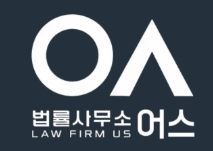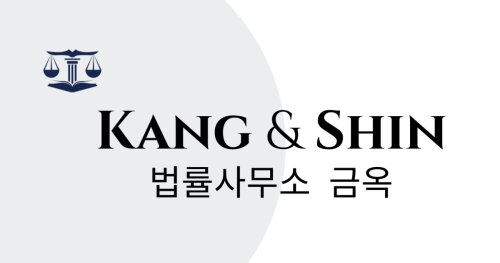Best Drug Crime Lawyers in South Korea
Share your needs with us, get contacted by law firms.
Free. Takes 2 min.
Or refine your search by selecting a city:
List of the best lawyers in South Korea
About Drug Crime Law in South Korea
The legal landscape surrounding drug crimes in South Korea is highly stringent, reflecting a societal and governmental zero-tolerance policy toward drug-related offenses. Drug crimes are considered serious offenses, and the country employs robust measures to curtail illegal drug use and trafficking. These laws are enforced by specialized units within the police and justice departments, and offenders typically face severe penalties, including imprisonment, heavy fines, and a potential criminal record that could impact future opportunities. Both the possession and distribution of narcotics are heavily regulated, with strict penalties even for small quantities.
Why You May Need a Lawyer
People may require legal help with drug crime charges under several circumstances. If you are accused of possession, distribution, trafficking, or manufacturing of illegal substances, consulting a lawyer is crucial. Legal representation is essential to navigate the complex legal process, ensure your rights are protected, and develop a strong defense. Additionally, non-citizens facing drug charges could face deportation or visa issues, necessitating expert legal guidance. For businesses, lawyers can help implement compliance programs to ensure adherence to South Korea's stringent drug laws.
Local Laws Overview
Several key aspects of local laws in South Korea are particularly relevant to drug crimes:
- Classification of Drugs: Controlled substances are classified into categories such as narcotics and psychotropic drugs, with specific laws governing each type.
- Penalties: The South Korean legal system imposes severe penalties for drug crimes, including long prison sentences and substantial fines, with harsher penalties for offenses involving trafficking or distribution.
- Zero Tolerance Policy: South Korea is known for its zero-tolerance approach towards drug use, which significantly influences the enforcement and judicial handling of drug-related cases.
- Rehabilitation Programs: While primarily punitive, the legal system also supports rehabilitation initiatives for drug offenders.
- Foreign Nationals: Special considerations and additional penalties may apply to foreign nationals, including deportation.
Frequently Asked Questions
What substances are considered illegal in South Korea?
Illegal substances include marijuana, cocaine, methamphetamine, and various narcotics and psychotropic drugs listed under the Pharmaceutical Affairs Act and the Narcotics Control Act.
What are the penalties for drug possession in South Korea?
Penalties for drug possession can include imprisonment of up to five years, with potential variations depending on the quantity and type of substance involved.
How does South Korea enforce its drug laws?
South Korea employs specialized police units, undercover operations, customs checks, and international cooperation to enforce drug laws.
Can foreigners be prosecuted for drug crimes in South Korea?
Yes, foreigners can be prosecuted and face the same legal consequences, including imprisonment and deportation for drug offenses.
Are there any defenses available for drug charges?
Yes, possible defenses include challenging the legality of the search and seizure or proving lack of knowledge about the illicit nature of the substance.
Can a drug conviction be expunged from my record?
Expungement is challenging and typically requires legal assistance, with outcomes varying based on case specifics and judicial discretion.
What is the role of rehabilitation programs in drug crimes?
Rehabilitation programs aim to treat addiction and reduce recidivism, sometimes influencing sentencing decisions favorably for the defendant.
How long does the legal process take for drug crimes?
The timeline varies, with initial hearings occurring within weeks, but complex cases can take months or years for full resolution.
What is the impact of a drug conviction on employment in South Korea?
A drug conviction may severely impact job prospects, as many employers conduct background checks and criminal records may lead to disqualification.
Is bail available for drug crime charges?
Bail is available at the discretion of the court, with considerations of flight risk, case severity, and personal circumstances influencing decisions.
Additional Resources
Several resources can provide additional help:
- Ministry of Justice: Offers guidance and resources on legal rights and obligations in drug-related cases.
- Korea Legal Aid Corporation: Provides legal assistance to those unable to afford representation.
- Seoul Global Center: Assists foreigners navigating legal issues in South Korea.
Next Steps
If you are facing drug crime charges and require legal assistance in South Korea, the following steps are recommended:
- Consult a Lawyer: Seek immediate legal consultation to understand your rights and the best course of action.
- Gather Evidence: Assemble any relevant documentation or evidence related to your case.
- Stay Informed: Keep abreast of local laws and any updates related to drug crime legislation.
- Consider Rehabilitation Options: If applicable, engaging in remediation programs could positively influence your case outcome.
Lawzana helps you find the best lawyers and law firms in South Korea through a curated and pre-screened list of qualified legal professionals. Our platform offers rankings and detailed profiles of attorneys and law firms, allowing you to compare based on practice areas, including Drug Crime, experience, and client feedback.
Each profile includes a description of the firm's areas of practice, client reviews, team members and partners, year of establishment, spoken languages, office locations, contact information, social media presence, and any published articles or resources. Most firms on our platform speak English and are experienced in both local and international legal matters.
Get a quote from top-rated law firms in South Korea — quickly, securely, and without unnecessary hassle.
Disclaimer:
The information provided on this page is for general informational purposes only and does not constitute legal advice. While we strive to ensure the accuracy and relevance of the content, legal information may change over time, and interpretations of the law can vary. You should always consult with a qualified legal professional for advice specific to your situation.
We disclaim all liability for actions taken or not taken based on the content of this page. If you believe any information is incorrect or outdated, please contact us, and we will review and update it where appropriate.
Browse drug crime law firms by city in South Korea
Refine your search by selecting a city.















